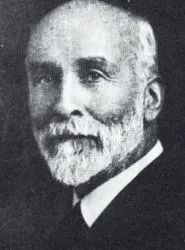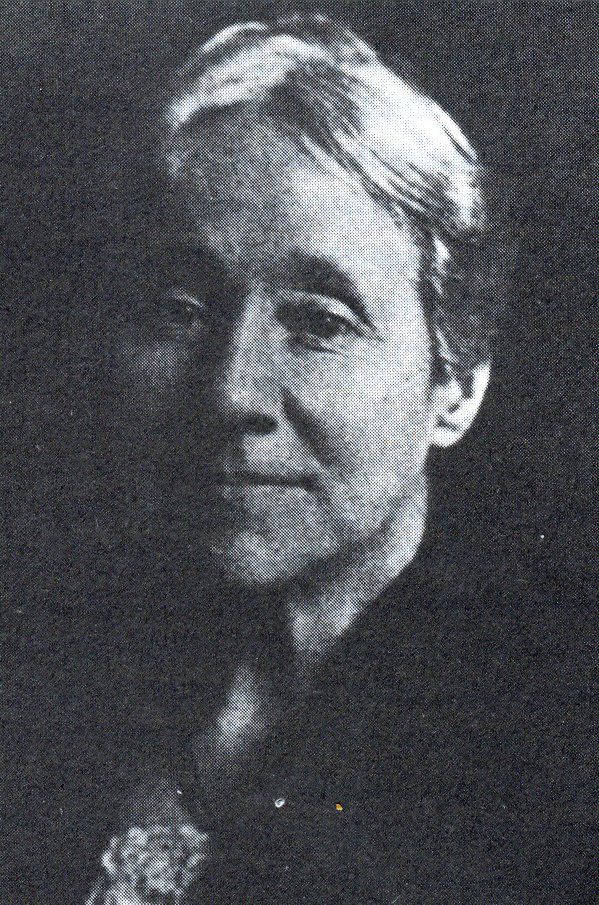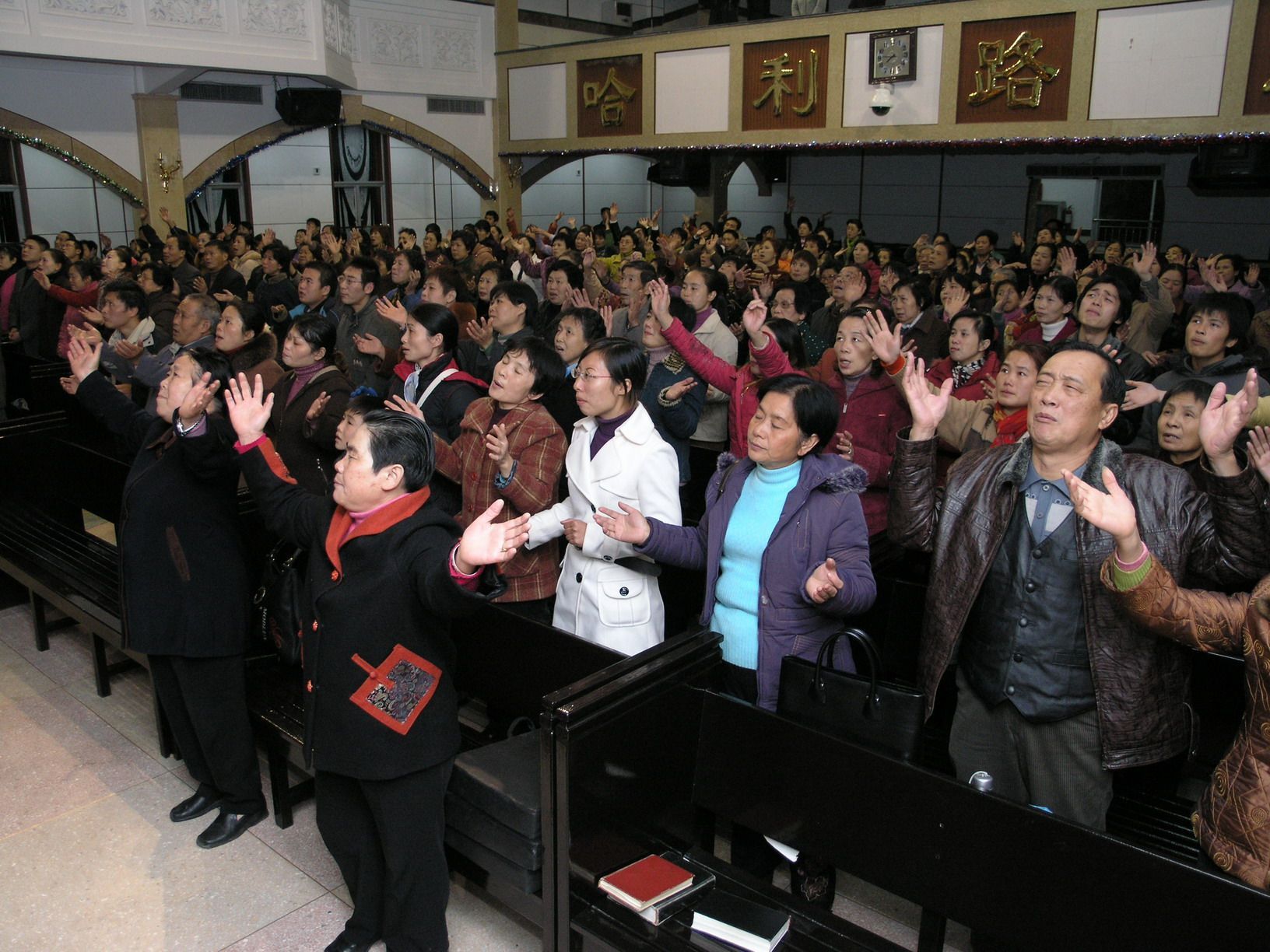Jonathan Goforth in Shandong (1859 - 1936)


Jonathan and Rosalind Goforth.
Canadian Presbyterian missionaries Jonathan and Rosalind Goforth first arrived in China in 1888, basing themselves in the eastern Shandong port city of Yantai. The Goforths' ministry was revolutionized after they read reports of the Welsh Revival and the Azusa Street Revival in California in the early twentieth century. News of these awakenings caused the Goforths to seek God more fervently, and they felt their work had lacked the kind of power and fruitfulness God desired.
After participating in the great revival that swept the Korean Peninsula, the Goforths returned to Shandong in 1908, from where Jonathan reported,
"A movement began and steadily increased in intensity until it finally reached a climax on the sixth day. I have been present at movements which have been more powerful, more far-reaching, perhaps, but none where I have felt so completely conscious of the Spirit's controlling power over a large body of people. It did seem that day as if every last vestige of opposition had been swept away and that Christ alone was exalted....
A wonderful testimony meeting was held on the last evening. Spontaneous resolutions to new obedience were heard from many. One remarkable thing about these testimonies was the great number who claimed that...when the Spirit's fire had swept so irresistibly through the audience, they had been healed of their bodily ailments. In my address I had made no special mention of divine healing. Yet here was the testimony of these people that suddenly, at some crucial moment, the illness which ailed them passed away." 1
The Goforths spent the following years traveling widely throughout China, and saw the fire of the Holy Spirit fall in many locations, expanding and strengthening the Body of Christ wherever they visited. In February 1914 the revivalist returned to Shandong, where he held a series of meetings at Qingzhou.
Goforth's reputation as a man of God preceded him, and more than 1,000 expectant believers crammed into the church building, expecting great things from God. A report on the meetings noted,
"Toward the close of the nine days' meetings, it became quite impossible for Mr. Goforth to give the addresses he had prepared. No sooner had we had the opening hymn and reading of Scripture than one after another rose—either in their seat or coming to the platform—and confessed sin and asked for prayer to live a better Christian life. This was not confined to any class or sex or nation—all were constrained to make public confession—pastors and evangelists, missionaries and professors, men and women, students and schoolgirls, old deacons in their 70s and little girls in their teens....
That the movement is of God and not of man is seen from nothing more than the fact that the greatest manifestations took place when Goforth was most in the background—when he was in fact compelled to remain silent." 2
Revival at Weixian College
At the Union College in Weixian in 1909, 196 out of 200 students made public confessions of faith in Jesus Christ, and believers who had been at conflict with each other fell on their faces and cried out for God's mercy. In one place, a prayer meeting that continued for six hours resulted in Christians abandoning lawsuits they had lodged against one another.
The catalyst for the Weixian revival was the Shandong preacher Ding Limei, who quietly slipped into the town at the end of March 1909. The next morning he spoke at the chapel, and the Holy Spirit moved powerfully among the students, convicting them of their sins and of coming judgment. Ding's personality was low-key and self-effacing, and the revivals God brought about through his ministry often shared the same characteristics. Even the conservative Chinese Recorder and Missionary Journal was moved to report,
"The most noticeable feature was the quietness which characterized the revival from beginning to end. Recently in China many revivals have been remarkable for the intense emotion manifested and unwonted public confession of sin. However necessary these things may be elsewhere, and on other occasions, here, for the most part, God spoke through the still, small voice, in the quietness of men's hearts, producing very deep but well-controlled conviction." 3
Rebellious Students
At Zhuocun, the missionaries had been struggling to deal with unruly students at the Christian high school. The boys had smashed all the school furniture and even burned an effigy of their principal. While Goforth gave his address, a group of boys were seated in the choir loft behind him. While he was speaking, he noticed amusement on the faces of some of the audience. When he asked a missionary if the boys were playing up behind his back and distracting the crowd during the preaching of God's Word, Goforth's suspicions were confirmed.
On the third morning Goforth ordered all the boys to leave the choir loft and sit in the front row directly in front of him. The rebellious teens took this as a great insult and refused to sing. The principal asked the missionary if it might be better to command the boys to sing. "Not on my account," Goforth replied, "The Spirit of God is going to make these boys yield and glorify their Master, and He will do it without either of us needing to lift a finger to help Him." 4
Throughout the fourth day the boys continued their silent protest, and it appeared they were a long way from yielding their hearts to Jesus. On the fifth morning, however, many of the boys were in tears as the Spirit of God convicted them. They sang heartily when called upon, and as soon as the service was opened for prayer,
"Boy after boy came running up to the front to make confession of sin. Among other things they confessed to drinking, gambling and to visiting houses of ill fame. Some of the boys were so overcome that they had scarcely begun to pray when they fell to the floor in agony. After the meetings, the boys went in bands on Sundays and preached in the surrounding villages." 5
At Qingzhou, in central Shandong, the students of the local mission school also strongly opposed Goforth's message and tried to obstruct the move of the Holy Spirit. Between 500 and 600 students were ordered to attend the revival meetings, and while many adults and most of the girls were broken and touched by the Holy Spirit, the boys remained completely unmoved.
As Goforth preached, he noticed that many of the boys had their heads down, reading from books in their laps. He pleaded with them to lay whatever they were reading aside and concentrate on the message, but they ignored his instructions.
On the sixth evening, one of the missionaries came up to the platform and publicly confessed his sin of smoking cigars. His contrite and tear-filled admission touched the hearts of all present, and the next morning one of the boys approached the platform carrying a pile of books. He flung them to the ground in disgust, and then he turned to face the congregation and said,
"'These are 'devil books'. Some of us boys picked them up in the city. They are written with the express purpose of polluting the mind with vile thoughts. Through them I have been led to commit adultery. While these meetings have been going on the devil has prompted us boys to keep reading these books so that we wouldn't hear God's truth and be convicted of our sin'....
One after another came forward and in great brokenness told how they had been led astray by the vile literature. Hour after hour scores kept pressing toward the platform. Finally, after the meeting had lasted five and a half hours, with dozens still waiting for an opportunity to confess, the missionaries practically compelled Goforth to take a rest." 6
In many other parts of Shandong the Lord Jesus visited His church with great cleansing power. Missionaries and Chinese church leaders alike confessed gross sins, and many relationships were restored as wrongs were made right and years of offence were cancelled and left at the foot of the cross of Christ. One man came to a meeting pushing a cart full of items he had stolen from people in the town. After asking forgiveness he proceeded to return the goods to their rightful owners.
Pingdu
Beginning in 1906 God also moved mightily at Pingdu, where more than 20 Christians had been slaughtered during the Boxer Rebellion just six years earlier. The principal of the Christian school stood up to publicly confess his sins, but when Goforth invited him to the stage, the man proceeded to make a speech that attacked others while not touching on any of his own faults.
Jonathan Goforth placed his hand on the man's shoulder and said, "Brother, you know perfectly well that there is not one atom of truth in what you are saying. Furthermore, you are not confessing sin. You are not being prompted by the Holy Spirit. You are merely taking advantage of this opportunity to vent your spite upon other people." 7
After hearing what Goforth said, the schoolboys rose in great anger, furious that their principal's integrity had been questioned. Goforth noted that they stormed out of the church, "shouting and yelling as they left.... I thought they would kick the door off its hinges as they went out. Yet, strangely enough, a mighty conviction seemed to fall upon all who remained." 8
Some of the other missionaries present expressed their concern that the evangelist had overstepped the mark by publicly rebuking the principal in front of his students. Goforth was unconcerned, believing he had spoken under the authority of the Holy Spirit and God would bring the truth to the surface.
The boys went through a time of terrible conviction after they walked out of the meeting, and many were unable to sleep as God searched their hearts. On the eighth morning, "they stood up before the church and acknowledged their fault. And, to crown the devil's defeat, the principal himself came up to the front, weeping, and confessed his sin....
Three years after these meetings were held it was reported that about 3,000 had been added to the churches in that region" 9
Footnotes:
1. Jonathan Goforth, By My Spirit (Minneapolis, MN: Bethany House Publishers, 1942), p. 106.
2. "Mr. Goforth's Meetings at Tsingchowfu, Shantung," Chinese Recorder and Missionary Journal (April 1914), pp. 254-6.
3. H.W. Luce, "The Revival in Weihsien College," Chinese Recorder and Missionary Journal (August 1909), p. 474.
4. Goforth, By My Spirit, p. 107.
5. Goforth, By My Spirit, p. 107.
6. Goforth, By My Spirit, p. 109-10.
7. Goforth, By My Spirit, p. 118.
8. Goforth, By My Spirit, p. 118.
9. Goforth, By My Spirit, p. 119.
© This article is an extract from Paul Hattaway's book 'Shandong: The Revival Province'. You can order this or any of The China Chronicles books and e-books from our online bookstore.





